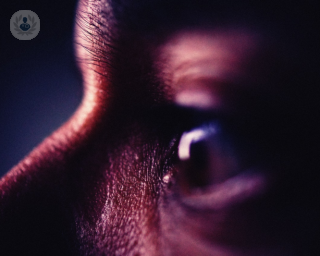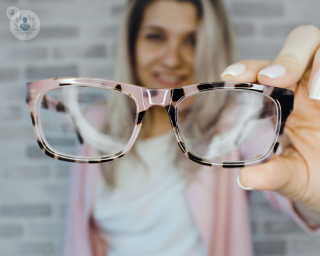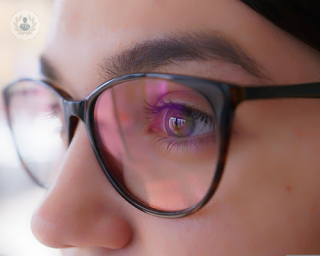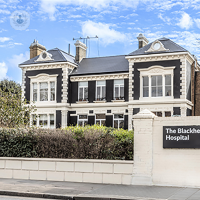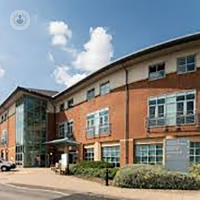Macular degeneration (AMD)
Mr Myer Mark Yodaiken - Ophthalmology
Created on: 05-26-2017
Updated on: 03-21-2023
Edited by: Sophie Kennedy
What is macular degeneration?
Macular degeneration is a condition which affects the macula, the part of the eye that provides us with clear central vision. As we grow, its function loses its abilities, causing macular degeneration, also known as AMD.
It is a fairly common ailment from the age of sixty onwards and can occur at various levels, sometimes it is imperceptible. On the contrary, it can also be developed in a much more virulent way, causing a total and progressive loss of central sight. There are two types of AMD; wet macular degeneration and dry macular degeneration.
Wet macular degeneration
- New blood vessels grow under the retina, causing bleeding and fluid leakage.
- New vessels form neovascular membranes.
- The evolution of this AMD is fast and can damage the central vision in a very significant way.
Dry macular degeneration
- This type of AMD evolves slowly over time (years).
- It occurs when spots begin to accumulate in and around the macula.
- It is a much more common type of AMD. More than eighty-five percent of all people with intermediate or advanced macular degeneration have the dry form.

Prognosis
Early diagnosis is key to starting a treatment as soon as possible. If macular degeneration is not treated quickly, the prognosis can be poor.
Symptoms of macular degeneration
Macular degeneration does not cause pain, but may present a number of visual symptoms that the patient should recognise:
- Difficulty reading and recognising people
- Straight lines that may appear wavy or broken
- Distance and height estimation alteration
- Needing more light to read
- Blurred vision
When the disease is in a more advanced stage, a black spot can be seen in the central area of vision, which gets darker and larger as the condition progresses.

Medical tests for macular degeneration
A complete diagnosis is usually made with:
- Visual acuity test
- Ophthalmologic examination, paying special attention to the condition of the macula
- Optical coherence tomography: a scan of the macula, which aims to show the presence or absence of a neovascular membrane
- Fluorescein angiography: photographs the back of the eye after and on injection of fluorescein into an arm vein
What causes macular degeneration?
Macular degeneration is related to ageing. Although age-related macular degeneration can occur in middle-aged people, studies indicate that people over the age of sixty are at a higher risk. Other risk factors include:
- Smoking
- Obesity
- Family history: People with directly related family members who have age-related macular degeneration are at increased risk of developing this disease.
- Gender: More women develop AMD than men.
Can macular degeneration be prevented?
Whilst it cannot be prevented, once macular degeneration is diagnosed, it is important to regularly and closely monitor patients so that the condition's progress can be observed and treatment applied.
Treatments for macular degeneration
Although there is no definitive treatment to repair the effects of age-related macular degeneration, early diagnosis is important to slow its progression. It has also been shown that consumption of antioxidant vitamins and zinc amongst others may contribute to the reduction of advanced macular degeneration (dry macular degeneration) and associated vision loss.
The treatment available for wet macular degeneration is given by injections into the eye with new medications, such as vascular endothelial growth factor antagonist therapy (VEGF).
Unfortunately, there is no treatment for dry macular degeneration but vision aids can help patients to manage their condition and reduce its impact on daily life. Small modifications at home, such as increasing the brightness of lighting and using applications that can make phones and other types of technology easier to use can be helpful. In addition, some patients may benefit from eccentric viewing training, a technique which helps to make the most of the level of vision that you have, albeit reduced.
Which specialist treats macular degeneration?
Ophthalmologists help to prevent, diagnose and treat diseases that affect patient's eyes and visual capacity, including macular degeneration.



